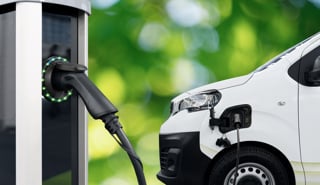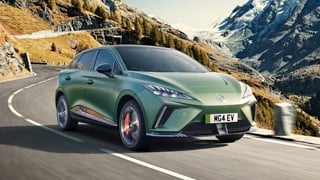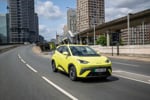The Association of Fleet Professionals (AFP) is urging fleets to take a proportionate response amidst cyber security concerns around company cars and vans.
Reports suggest that vehicles with Chinese components have been banned from sensitive sites and military training bases in the UK.
Staff working at the secretive military site at RAF Wyton in Cambridgeshire have been told they must park electric vehicles (EVs) made using Chinese technology at least two miles away from key buildings, according to The i Paper.
However, the Ministry of Defence (MoD) says that there are no centrally mandated restrictions on the movement of Chinese-manufactured EVs on to military barracks or training areas.
Responding to a written question from Conservative peer Lord Robathan asking whether the Government had imposed any restrictions on Chinese-made EVs at MoD sites, defence minister Lord Coaker said that the MoD is actively assessing security threats related to all vehicles, but there is no overarching policy restricting the movement of Chinese-manufactured EVs on to military property.
“The Ministry of Defence takes the security of defence assets very seriously and is working with other Government Departments to understand and mitigate any potential threats to national security from vehicles,” he said.
He emphasised that the Government’s security approach applies to all vehicles, not just those manufactured in China.
“Our policies and procedures take account of the potential threats from all types of vehicle, not just those manufactured in China, and we have issued appropriate internal direction to all drivers and passengers.”
While there is no blanket restriction, the minister acknowledged that individual defence organisations may have stricter rules regarding electric vehicles on certain sites.
Paul Hollick, chair at the AFP, said there were undoubtedly issues that needed to be addressed but they probably affected only a relatively small number of fleets.
He continued: “Can vehicles equipped with multiple cameras, microphones, lidar and their own internet access potentially be used to gather information in a hostile manner? The answer to that is yes. However, we have no knowledge of this ever having happened and this is a subject where it is easy to stray into sensationalism.
“We have members who work in Government, in critical infrastructure, in defence and in the military who have concerns in this area and take a range of precautions.
“For example, some have adopted guidance about where cars can be parked in relation to sensitive facilities they are visiting.
“To us, these actions seem sensible. These are sectors with a heightened awareness of cyber security and which have good reasons to be very careful.
“They will also tend to have rules governing when and where personal mobile phones can be used, and the risk presented by the latest cars is not dissimilar.”
However, Hollick stressed that the dangers for most fleets were very limited and the need to take action probably unnecessary.
“Our feeling is that fleets should deal with this in a proportionate manner,” he added. “If you are working in an industry where security is perceived as a less critical issue and are serving a similar customer base, then the possibilities of a problem arising are almost certainly slight.
“The concentration on EVs is probably unfair. Because they are new and tend to be among the most advanced vehicles on the road, electric cars and vans will be better equipped with the kinds of cameras and microphones that present risk, but there is no practical experience to suggest that they bring a higher level of jeopardy.”
Hollick says that the AFP has several members have extensive experience of vehicle cyber security and are happy to share their best practice ideas.
He concluded: “Among our membership, we have fleets operating into almost every sector of UK government and industry, and many of them have been considering this issue for several years.
“They are a valuable source of advice and help and crucially, can offer support on both assessing risk and the appropriate precautions to take.”























Login to comment
Comments
No comments have been made yet.